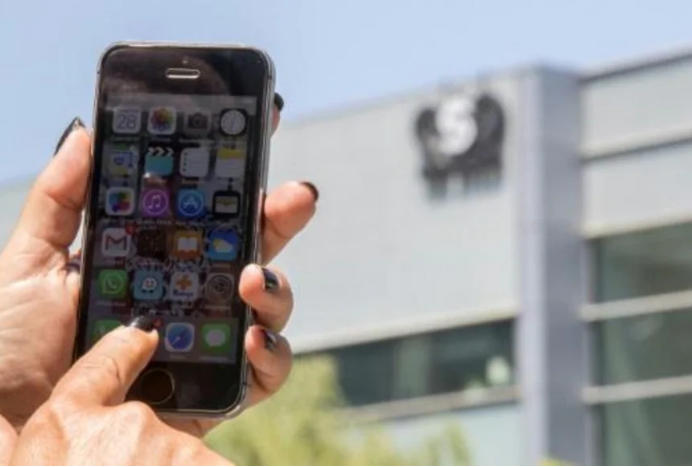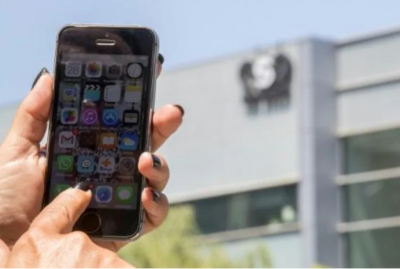Algeria expressed "deep concern" on Thursday following reports about Morocco's use of the Israeli spyware "Pegasus" to spy on "Algerian officials and citizens," amidst rising tensions between the neighboring countries due to the Western Sahara issue. The Ministry of Foreign Affairs stated in a press release that Algeria shows "deep concern after the revelation (...) that the authorities of certain countries, particularly the Moroccan Kingdom, are widely using the spyware program known as +Pegasus+ against Algerian officials and citizens."
French newspaper "Le Monde" and the French-language website "Tout sur l'Algérie" reported that an investigation by the organizations "Forbidden Stories" and Amnesty International revealed that thousands of Algerian phone numbers—including those of senior political and military officials—were identified as potential targets of the "Pegasus" program developed by the Israeli company NSO in 2019. This has sparked widespread outrage in Algeria, especially on social media.
In response, Morocco decided to file a lawsuit in the Paris criminal court against the organizations "Forbidden Stories" and Amnesty International for defamation. The Algerian Foreign Ministry's statement emphasized that Algeria "strongly condemns this systematic and unacceptable assault on human rights and fundamental freedoms, which also constitutes a gross violation of the principles and foundations governing international relations." The statement described this "illegal, reprehensible, and dangerous practice" as undermining the climate of trust that should prevail in exchanges and interactions between officials and representatives of nations.
The statement further noted that since Algeria is "directly targeted by these attacks," it "reserves the right to implement its response strategy and remains prepared to engage in any international effort aimed at collectively establishing the facts and shedding light on the extent and magnitude of these crimes that threaten international peace and security, as well as human security." It concluded that "any impunity would create a severe precedent with dire consequences for the conduct of friendly relations and cooperation between states in accordance with international law."
Earlier on the same day, the public prosecution at the Sidi M'Hamed Court in Algeria ordered the opening of a preliminary investigation following media reports on espionage operations targeting Algeria using the Israeli "Pegasus" program, according to a statement from the Algerian public prosecutor's office. The statement noted that the public prosecution has ordered a preliminary investigation tasked to "the specialized judicial police services for combating cyber and informatics crimes."
The public prosecutor's statement highlighted that this investigation follows "what some national and international media have reported, and reports received from the governments of some countries regarding espionage operations targeting Algerian interests and phone tapping of Algerian citizens and figures through spyware designed for this purpose." The statement added that "if these facts are proven, they constitute crimes punishable under Algerian law" due to "the crime of collecting information with the intent of delivering it to a foreign state resulting in harm to the interests of national defense" and "the misdemeanor of wrongful or unlawful entry into a data processing system" as well as "the misdemeanor of violating the confidentiality of communications."
**Algeria Withdraws Its Ambassador from Rabat**
This situation arises at a time when relations between Algeria and Morocco have reached new lows due to the Western Sahara conflict. Algeria announced on Sunday that it has immediately recalled its ambassador in Rabat "for consultations." For Morocco, the main reason for the tension between the two countries is Algeria's support for the Polisario Front, which demands a self-determination referendum.
Morocco was the fourth Arab country to resume relations with Israel late last year under an agreement facilitated by former U.S. President Donald Trump's administration, which also recognized U.S. sovereignty over the disputed Western Sahara territory with the Polisario Front. This led to escalated tensions with Algeria, which denounced "foreign maneuvers" aiming to destabilize the region. Morocco controls about 80 percent of the vast and phosphate-rich desert region and proposes granting it autonomy under its sovereignty.
Meanwhile, the Polisario Front, which declared the establishment of the "Sahrawi Arab Democratic Republic" in 1976, calls for organizing a self-determination referendum approved by the United Nations in conjunction with a ceasefire agreement between the conflicting parties in 1991. All attempts to resolve the conflict have yet to yield results.




